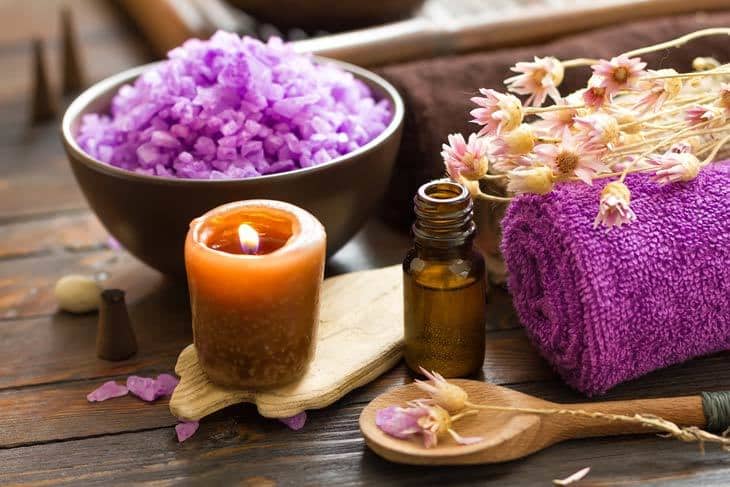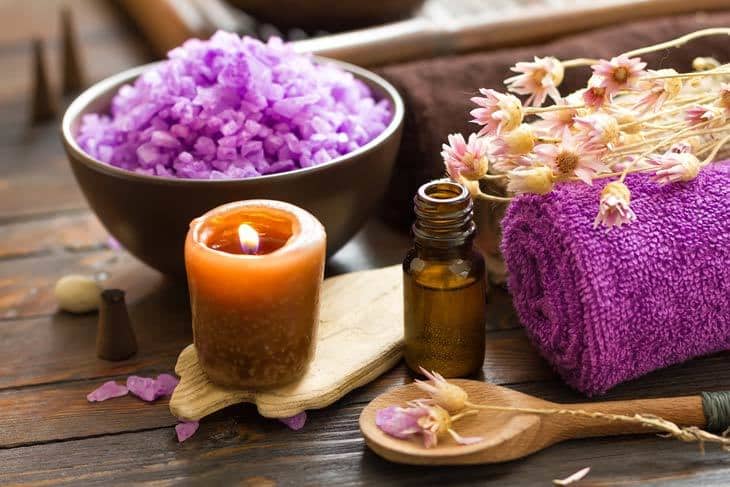Aromatherapy is a remarkable alternative therapy that includes the inhalation of aromatic plant components, often known as essential oils, by patients with a range of health problems. It is frequently used to boost mood, shift cognitive states, and act as a supplementary medication. It works because our sense of smell can elicit powerful emotional responses, and you’ll be astonished to hear about the vast range of uses for these essential oils. Here is a list of five health benefits of aromatherapy that you should know about.
1. Depression
Aromatherapy is frequently used to alleviate depression, and this is a critical function of aromatherapy considering the severe side effects of conventional antidepressants. While this can be helpful as a supplement, if depression persists or worsens, psychiatric therapy or counseling should be sought out.
Most specialists agree that peppermint, chamomile, lavender, and jasmine are the best essential oils to use for alleviating depression. It’s crucial to remember that essential oils aren’t a cure for depression, but studies show that they can assist with some symptoms of sadness, such as anxiety relief and relaxation enhancement.
2. Stress
Stress is a common aspect of life, and it affects everyone differently. While avoiding it is practically impossible, there are strategies to deal with it. The most common and well-known application of aromatherapy is for stress alleviation. Relaxants are aromatic molecules found in many different essential oils that can help calm your mind and relieve anxiety.
Because the combinations are easy and the research on this component of aromatherapy is well-known and thoroughly studied, this is what most individuals who practice aromatherapy at home use it for. For example, lavender essential oil has been shown to alleviate stress. Lavender relaxes the neurological system by decreasing blood pressure and pulse rate, as well as rewiring brain waves.
3. Headaches
From time to time, everyone has headaches. Aromatherapy may be a fantastic option that will not only treat your present headache but also perhaps minimize the source of your headaches in order to avoid future headaches.
Headache oils such as eucalyptus, rosemary, peppermint, spearmint, and lavender have been used for thousands of years to treat headaches. Lavender and rosemary essential oils help to reduce pain, tension, and stress, all of which are common causes of headaches. Peppermint oil has a long-lasting cooling impact and can reduce muscular contractions while also increasing blood flow when applied topically.
4. A lack of energy
Do you sometimes get that 3 p.m. slump? You’re running out of steam because the coffee has worn off. Why not try a natural alternative to coffee instead of reaching for your fourth cup? The good news is that essential oils may wake up your senses and put a spring in your stride. All citrus oils, particularly lemon, are rich in antioxidant terpenes like limonene, which have stimulating properties.
Peppermint improves exercise performance, enhances brain oxygen concentration, improves performance, and reduces tiredness, according to research published in the Journal of the International Society of Sports Nutrition. Are you ready to put an end to sleepiness and feel invigorated all day long? Smell the lemons the next time you feel tired.
5. Poor sleep
Sleep deprivation may worsen or cause a wide range of medical disorders, as well as make us feel unproductive and drained of energy. Fortunately, aromatherapy may help us achieve a more balanced sleep pattern and even reset our circadian rhythms so that our bodies naturally become sleepy at the proper times, sleep soundly through the night, and wake up rejuvenated to face the day.
Lavender, clary sage, chamomile, marjoram, frankincense, valerian root, and bergamot are all sleep-inducing essential oils. Valerian root has been used for hundreds of years due to the sedative and soothing properties of valerenic acid.

